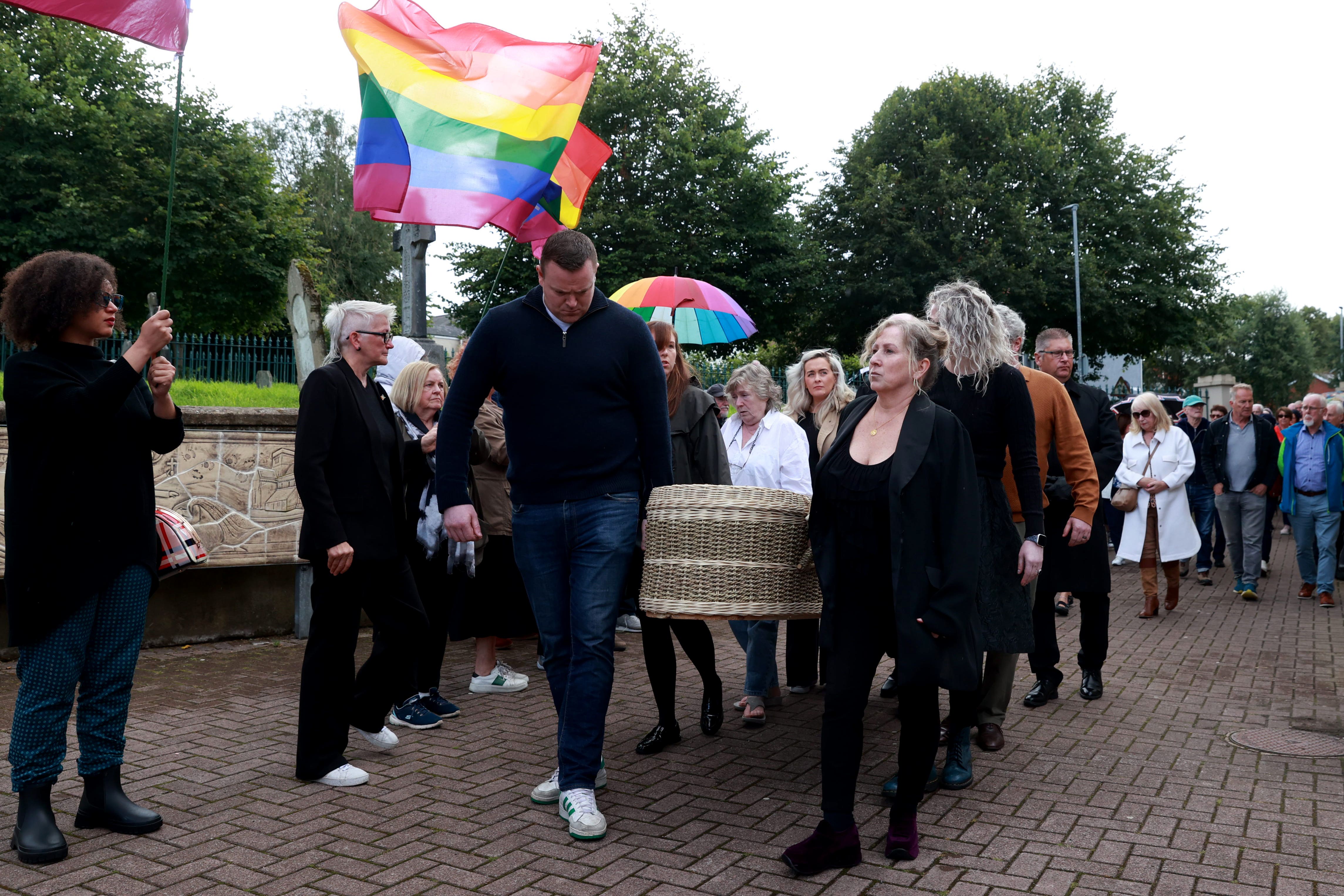Mourners at funeral of journalist Nell McCafferty applaud her life and legacy
‘There will never be another Nell McCafferty,’ the congregation was told.

Your support helps us to tell the story
From reproductive rights to climate change to Big Tech, The Independent is on the ground when the story is developing. Whether it's investigating the financials of Elon Musk's pro-Trump PAC or producing our latest documentary, 'The A Word', which shines a light on the American women fighting for reproductive rights, we know how important it is to parse out the facts from the messaging.
At such a critical moment in US history, we need reporters on the ground. Your donation allows us to keep sending journalists to speak to both sides of the story.
The Independent is trusted by Americans across the entire political spectrum. And unlike many other quality news outlets, we choose not to lock Americans out of our reporting and analysis with paywalls. We believe quality journalism should be available to everyone, paid for by those who can afford it.
Your support makes all the difference.Mourners have gathered to remember journalist Nell McCafferty, who was described as a unique and bold activist who railed against oppression.
People held LGBT+ rainbow flags as they attended her funeral mass at St Columba’s Church Long Tower in her home city of Derry.
Those gathered erupted in applause after one of her articles about Bloody Sunday was read out before the mass began.
The writer, 80, died on Wednesday at a nursing home in Fahan, Co Donegal, following a long illness.
Tributes have poured in from activists, politicians and artists about her journalism and her advocacy for women’s rights issues across the island of Ireland.
President of Ireland Michael D Higgins led the tributes, describing McCafferty as a writer who had a “fierce drive to tackle repression, poverty and authoritarianism”, while Irish premier Simon Harris said she “suffered no fools” and was “impossible to ignore”.
Northern Ireland First Minister Michelle O’Neill and representatives of Mr Higgins and Mr Harris were among those in attendance on Friday.
Considered a journalistic trailblazer and fearless social commentator, McCafferty, who was raised in Derry’s Bogside area, authored several books and also wrote for publications including the Sunday Tribune and Hot Press.
Campaigning for the legalisation of contraceptives in Ireland in the 1970s, she famously took part in an event known as the Contraceptive Train in 1971 when activists travelled across the border to Belfast, bought a range of contraceptive products and took them to Dublin, where they staged a protest at the city’s Connolly station.
McCafferty had previously been in a long term relationship with fellow author Nuala O’Faolain, who died in 2008.
McCafferty’s sister Carmel, who is a playwright, was embraced by people outside the church on Friday.
Also in attendance were the Mayor of Derry and Strabane Lilian Seenoi-Barr, SDLP MLA for Foyle Sinead McLaughlin, and former vice-chairman of the Northern Ireland Policing Board Denis Bradley, as well as Liam Wray, the brother of Jim Wray who was killed on Bloody Sunday.
Addressing the congregation, former journalist Eamonn McCann read out extracts from an article McCafferty wrote for local paper The Starry Plough about Bloody Sunday, which bore the headline “There’ll be another day”.
The article gave a powerful immediate reaction to the news that 13 people had been shot dead after soldiers opened fire on a civil rights march on January 30 1972.
Mr McCann said: “Bloody Sunday is very important to Derry of course, it’s defined us all. Whatever you thought of your politics and so on, it’s defined everybody from Derry.”
He said that hours after the chaos unfolded, no-one knew exactly how many people had been killed or wounded.
The then-MP for Mid-Ulster Bernadette McAliskey, who was in attendance at the funeral, was given the names of the 13 men who were killed after phoning the hospital.
“I remember Nell holding Bernadette’s elbow as she was taking the names of the Bloody Sunday dead, and she just kept on writing,” Mr McCann said.
“That was a terrible omen, and I remember the shiver which went through the hallway and through the McCafferty house and eventually through the whole of Derry and large parts of the world.”
He said Bloody Sunday had an effect on McCafferty, on how she viewed politics, on how she thought of her city’s people and its marches.
In the article that she wrote for the paper, she called the infamous event both “a fine day and a foul day”, he said.
She described the thousands of people singing and marching through the streets as part of the “fine day” it had been, but that “death is no stranger to us now”.
“Let it not be said of us that they died in vain. Stay free brothers and sisters, there will be another day,” she wrote.
“And so there will be another day, but there will never be another Nell McCafferty,” Mr McCann said, which was met with a lengthy applause from mourners.
After the funeral mass ended, mourners applauded her once more as her coffin was carried out of the church.
McCaffrey’s body was taken for a private cremation in Co Cavan following the mass.
A book of condolence has been opened by Ms Seenoi-Barr in The Guildhall for those who wish to pay tribute to McCafferty.